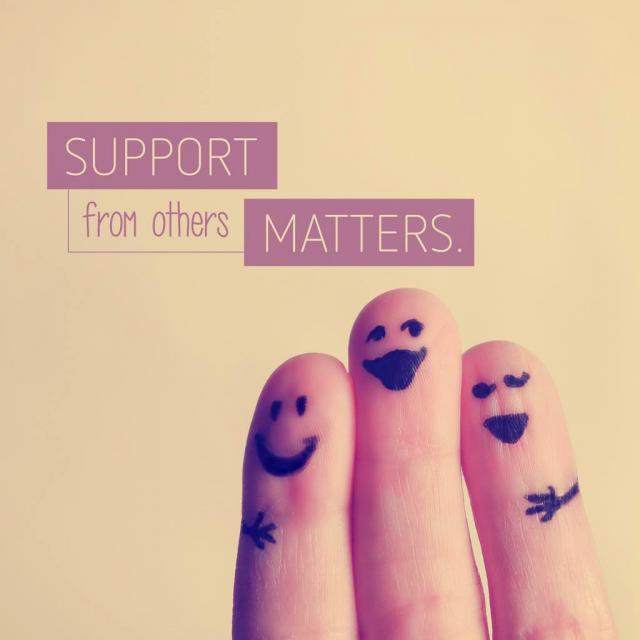If you’ve been smoking for a while, people may know you as a smoker. Deciding to quit doesn’t mean you won’t be able to spend time with your friends and family—even if they still smoke.

Relationships are common reasons why people start or continue to smoke. Maybe you grew up around smokers and it seemed natural for you to smoke, too. Maybe your partner smokes and it’s a way that you spend time together. The important people in your life can also be a key to your success in quitting. You might even be surprised by how much help they can be.
Tell Them You’re Quitting
Quitting is hard. It’s OK to ask for help. If you let people close to you know you’re trying to quit, you can tell them what will help you be successful. Be specific—say exactly what you need from them. Here are some suggestions about what to ask of your friends, family, and co-workers:
- Be supportive: Some people may be able to quit on their own, but many need help and support. Ask friends, family, and loved ones to be there for you during this time.
- Understand your change in mood: Mood changes are common after women quit smoking. Remind the people around you that this is temporary. You can say, "The longer I go without smoking, the sooner I'll be back to my old self."
- Offer distractions: Most people have cravings when they quit smoking. Your friends and family can distract you until the craving passes. Ask them to help you come up with a list of things to do.
- Celebrate with you: Ask friends and family to help you celebrate your smokefree successes – like throwing away your cigarettes, setting a quit date, and reaching milestones like being smokefree for three days. Even if you slip or relapse, you can still celebrate all the cigarettes you didn’t smoke!
- Quit with you: Does someone close to you smoke? Quitting can be easier with support, so ask them to quit with you. If they’re not ready, ask them not to smoke around you or let you bum a cigarette.
The Power of a Partner
Women’s romantic partners can have a big effect on whether they become smokefree. Women who get support from their partners have an easier time quitting. But some partners may not be supportive, or may try to control the smokefree process. This can lower a woman’s confidence and make it harder for her to quit. Every couple is different, but relationships tend to follow four patterns when it comes to how partners relate to each other about smoking:
- Involved: Both partners see smoking as a problem because of health, financial, or other reasons but also know that trying to quit can be hard. Regardless of who is smoking in the relationship, they try to be supportive and understanding.
- Accommodating: Both partners see smoking as okay and make sure there are chances to smoke during their everyday activities. This is true even if only one partner smokes.
- Disengaged: Both partners see smoking as a choice each partner makes. Even if they both smoke, they often smoke when they aren’t with each other.
- Conflictual: One partner criticizes their partner’s smoking habits or their decision to continue, or quit smoking. This can cause tension, arguments, and hurt feelings. The stress on the relationship might drive someone to slip up and smoke or even go back to smoking regularly. This may especially be true if smoke breaks have been used in the past to find peace. If this sounds like your relationship, ask for help from people who can be more supportive.
Knowing your partner’s beliefs about smoking can help you figure out what support you need in order to become smokefree. It can also help you prepare for how your partner might react to your quit attempt. If you think your partner might not understand your quit attempt or won’t want you to quit smoking, there are other ways to find the support you need.






